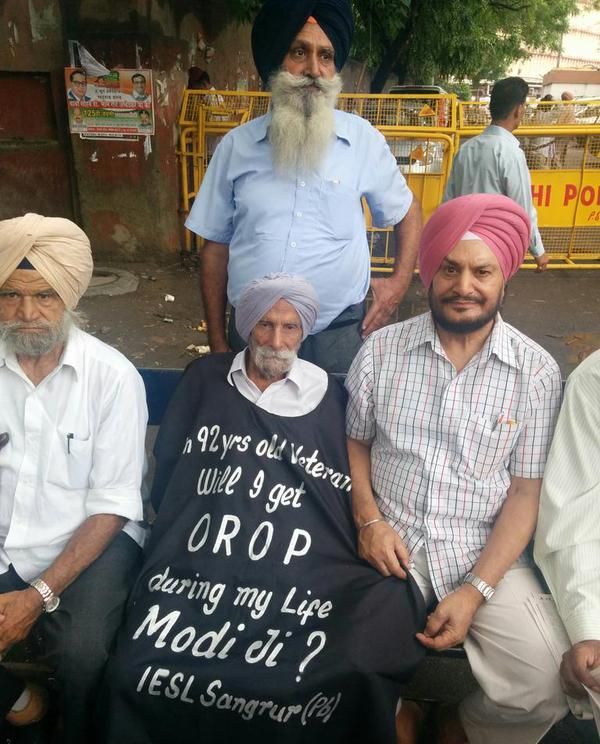 The long-pending 'One Rank One Pension' scheme for ex-servicemen is likely to be rolled out ahead of the assembly polls in Bihar later this year, top government sources indicated on Tuesday.
The long-pending 'One Rank One Pension' scheme for ex-servicemen is likely to be rolled out ahead of the assembly polls in Bihar later this year, top government sources indicated on Tuesday.
The government is working out the modalities for OROP and the announcement will be made by Prime Minister Narendra Modi, they said.
-- FAQ: What is One Rank, One Pension?
"It (OROP) is being worked out. We will need to have a separate category so that it cannot be legally challenged later on and nor do others stake claim. This would be separate from other government pensions," the sources said.
Asked when it will be rolled out, they indicated that the scheme is likely to be announced ahead of Bihar election if all modalities are worked out.
Mounting further pressure on the Modi government, ex-servicemen have decided to hold a huge rally in Bihar ahead of the Assembly polls to demand the "promised due" of 'One Rank One Pension'.
The decision came even as groups of ex-servicemen went on a relay hunger strike in about 20 cities across the country starting Monday.
Assembly polls in Bihar are likely in September/October this year. BJP has a tough fight on hand against the JD(U)-RJD combine, which is likely to have a poll pact with Congress in the state.
The Modi government has said it is committed to OROP, a key promise made during Lok Sabha polls. It has, however, not implemented it till now.
Even though the government has said it is committed to implementing OROP, there has been no official word on why the scheme is getting delayed.
Defence ministry sources said the OROP file is with the finance ministry for a final budgetary approval.
Close to 22 lakh ex-servicemen and over six lakh war widows stand to be immediate beneficiaries of the scheme, which envisages a uniform pension for the defence personnel who retire in the same rank with the same length of service, irrespective of their date of retirement.
Currently, the pension for retired personnel is based on the Pay Commission recommendations of the time when he or she retired.
So, a Major General who retired in 1996 draws a lower pension than a Lieutenant Colonel who retired after 1996.






 © 2025
© 2025